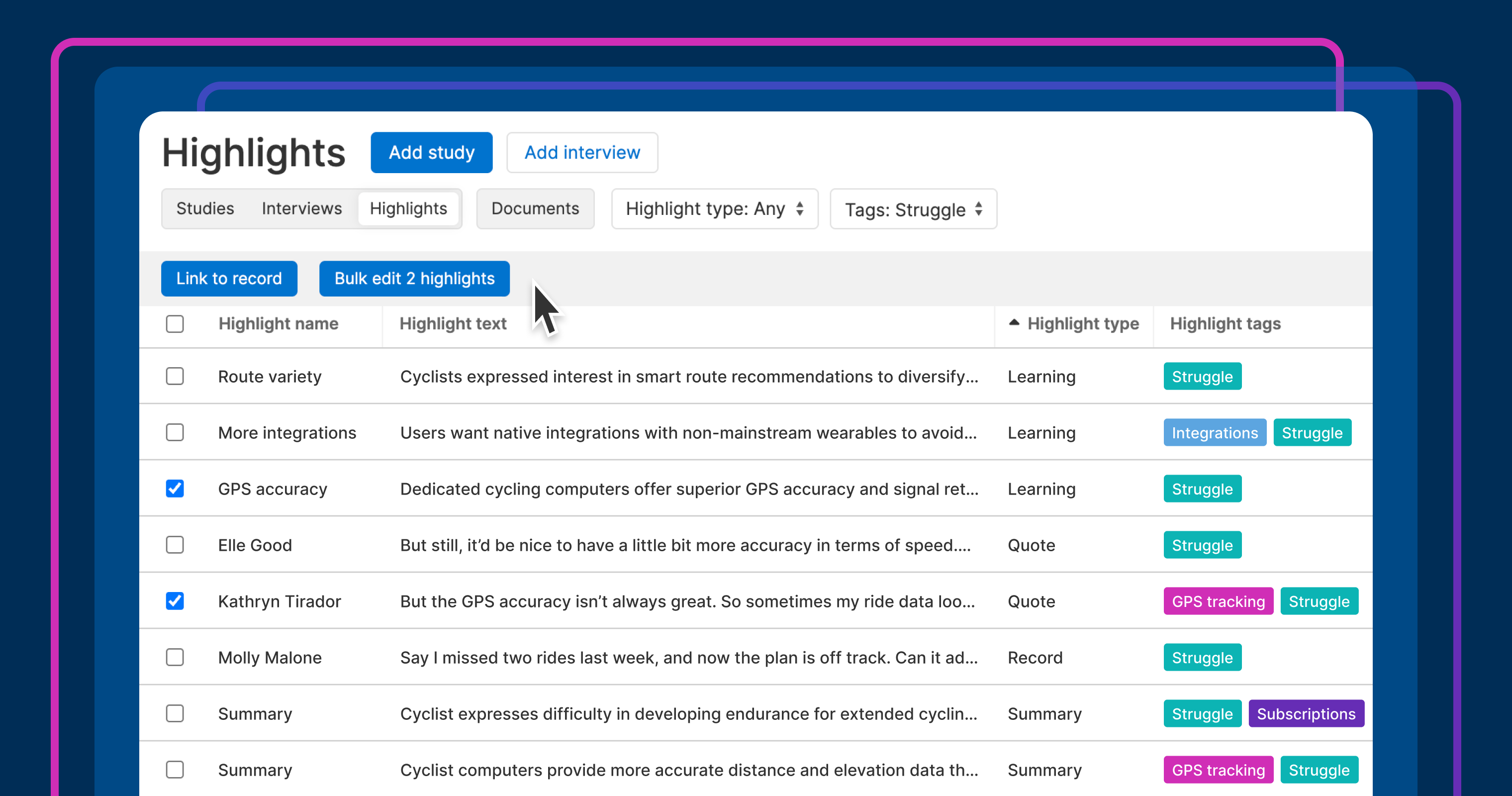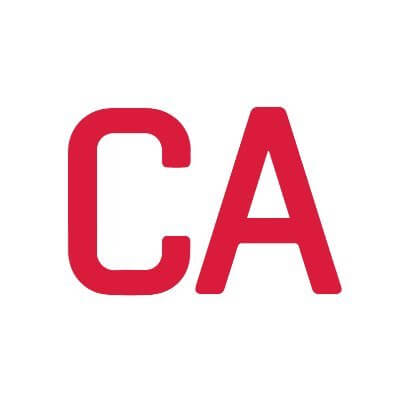Canada Document Legalization Navigator: Your Definitive Guide to Certificate Attestation for International Use (Beyond Apostille)

In an increasingly globalized world, Canadian citizens, permanent residents, and businesses frequently find themselves in situations where their official documents require legal recognition beyond Canada's borders. Whether for securing coveted employment opportunities overseas, pursuing prestigious higher education abroad, facilitating intricate cross-border commercial transactions, managing personal matters such as family reunification or property dealings in a foreign country, or fulfilling specific immigration requirements, the attestation of Canadian-issued certificates is an indispensable and often complex process. The widespread inquiry, "Canada certificate attestation," frequently arises from a critical need for clarity on the precise steps required to validate Canadian documents for international acceptance. However, understanding this process correctly is paramount, as the terminology and procedures involved differ significantly depending on the destination country's international agreements and its relationship with the 1961 Hague Convention.
It is absolutely crucial to internalize a foundational legal principle that governs international document validation for Canadian papers: as of the current date, Canada is NOT a signatory to the prestigious 1961 Hague Convention Abolishing the Requirement of Legalisation for Foreign Public Documents. This cardinal distinction carries profound and direct implications for how Canadian-issued documents are authenticated for use abroad. Consequently, a bona fide "Apostille" certificate, as meticulously delineated and stringently regulated by the Hague Convention's statutes, cannot be procured or issued in Canada for any Canadian document, regardless of its type. While there are ongoing discussions and legislative movements regarding Canada potentially joining the Hague Convention in the future, for the present, the universally acknowledged and statutorily mandated procedure for comprehensive document validation for Canadian certificates destined for non-Hague Convention countries (which includes a significant number of nations such as the United Arab Emirates, Qatar, Saudi Arabia, China, Vietnam, and many others) is formally known as traditional attestation or consular legalization.
Therefore, when individuals or corporate entities search for "Canada certificate attestation," their true underlying objective, and indeed, what highly reputable and specialized service providers diligently furnish, are comprehensive Canadian document authentication and full legalization services. These highly specialized professional entities meticulously orchestrate the intricate, multi-tiered process that is absolutely indispensable to imbue your Canadian documentation with authentic legal validity and irrefutable official recognition in the destination country. This comprehensive blueprint will systematically dissect this crucial procedural framework, methodically elucidating each actual step involved. We will cast incisive light upon the precise pathway for Canadian-originated certificates earmarked for international deployment, painstakingly articulate the exact procedural stages, meticulously catalogue the diverse categories of documentation routinely necessitating this critical legalization, transparently delineate realistic associated costs and pragmatic processing timelines, meticulously highlight common administrative obstacles and procedural pitfalls that must be assiduously circumvented, and emphatically underscore how engaging highly specialized professional services can furnish invaluable, expert assistance, ultimately guaranteeing your Canadian certificates achieve full legal validity for seamless integration and undeniable success in foreign jurisdictions.
Why Canadian Certificate Attestation is a Cornerstone for Global Pursuits
The stringent legal and administrative frameworks of foreign nations, meticulously designed to uphold order, prevent fraud, and ensure the integrity of official documentation, mandate the attestation of Canadian-issued certificates for numerous essential purposes. This pivotal process is far from a mere bureaucratic whim; it's a critical mechanism to ensure authenticity, maintain international legal order, and facilitate your personal, professional, and academic aspirations globally. Here’s an in-depth look at why your attested Canadian certificates are absolutely crucial documents when venturing abroad:
-
Mandatory for Foreign Employment Visas & Work Permits: This is, unequivocally, one of the most common and profoundly vital reasons for Canadian educational certificate attestation. To secure an employment visa and the associated work permit in many countries worldwide, prospective employers and governmental immigration bodies stringently require fully attested Canadian educational degrees, diplomas, and often academic transcripts. This documentation is crucial for verifying your qualifications, determining your job classification, and ensuring that you meet the minimum educational criteria for your intended role in the foreign country. Without this critical attestation, your employment visa application will face immediate and uncompromising rejection, leading to significant delays and potential loss of job opportunities.
-
Essential for Professional Licensing & Accreditation Abroad: For highly skilled professionals seeking to legally practice their specialized trade in regulated sectors of a foreign country (e.g., healthcare, engineering, legal services, accounting, teaching), attested Canadian educational certificates are an absolute, non-negotiable prerequisite for obtaining the necessary professional licenses or registering with local regulatory bodies. This rigorous attestation process ensures that professional qualifications are genuinely acquired from recognized and accredited Canadian institutions and are legally validated against the standards of the destination country, thereby upholding professional integrity and public safety.
-
Crucial for International Academic Enrollment & Equivalency: Students from Canada who endeavor to enroll in universities, colleges, or vocational training centers abroad must furnish meticulously attested Canadian educational documents. These documents are used by admissions offices to verify prior academic achievement. Additionally, foreign Ministries of Education frequently mandate attested Canadian academic degrees for the express purpose of issuing crucial "equivalency certificates" or for direct admission. This ensures proper recognition and seamless integration into the foreign educational system.
-
Vital for Family Sponsorship & Dependent Visas: For Canadian citizens or permanent residents living abroad (or foreign nationals seeking to sponsor Canadian family members to join them in a non-Hague country), attested Canadian personal documents are fundamental. Birth certificates are essential for sponsoring children, while marriage certificates are critical for spousal sponsorship. These documents provide the irrefutable legal proof of familial relationships required by foreign immigration authorities.
-
Fundamental for International Commercial & Business Transactions: Canadian businesses and entrepreneurs planning to establish operational bases, open bank accounts, register companies, or engage in significant commercial transactions in foreign markets must ensure their core commercial documents are legally validated. Key documents requiring attestation include Certificates of Incorporation, Articles of Association, Trade Licenses, Commercial Powers of Attorney, Board Resolutions, and Certificates of Origin. Attestation ensures their legal validity, enforceability, and compliance with foreign corporate laws.
-
Required for Real Estate & Property Transactions Abroad: When engaging in substantial real estate dealings in a foreign country, such as the acquisition, divestiture, or lease of property, particularly when Canadian individuals or corporate entities are directly involved, specific documents frequently necessitate full attestation. Powers of Attorney or marriage certificates, for example, might be required by foreign land registries or legal bodies to confirm ownership rights or grant legal representation.
-
Accessing Essential Government & Private Sector Services Overseas: Beyond the aforementioned major categories, attested Canadian documents are routinely required for a multitude of other critical governmental and private sector services abroad. These can include opening personal bank accounts, navigating complex legal proceedings (e.g., divorce, inheritance), or applying for certain types of driving licenses in the destination country.
In essence, Canadian certificate attestation is not merely a bureaucratic hurdle; it represents the foundational legal acknowledgment that empowers individuals and businesses to fully integrate, operate with optimal efficiency, and truly thrive within the robust and dynamic regulatory frameworks of foreign nations. It unequivocally safeguards their fundamental legal rights and diligently facilitates the realization of their aspirations on the global stage.
The Multi-Step Process for Canadian Certificate Attestation for International Use
The comprehensive attestation process for Canadian certificates destined for use in non-Hague Convention countries (such as the UAE, Saudi Arabia, Qatar, China, Vietnam, etc.) is a multi-layered chain. Understanding each distinct and precise pathway is absolutely crucial for individuals and corporate entities to effectively navigate the attestation journey with minimal friction and meticulously avoid any potential procedural errors or frustrating delays.
Step 1: Preliminary Notarization / Local Verification in Canada (If Applicable)
-
Purpose: This initial step establishes the foundational layer of authenticity for the document within Canada, preparing it for authentication by Global Affairs Canada. It's particularly relevant for documents that are not original government-issued vital records or for documents that are copies.
-
Process:
-
For Academic Documents (Degrees, Diplomas, Transcripts): Most Canadian academic documents will require prior notarization by a Canadian Notary Public. The notary will verify the authenticity of the academic institution's signature and seal. In some cases, depending on the destination country's requirements, direct verification from the university/college to Global Affairs Canada (GAC) might be necessary before GAC will authenticate.
-
For Personal Documents (e.g., Statutory Declarations, Powers of Attorney, Certified True Copies): These types of documents, which are often created by individuals or are copies of original vital records, must be notarized by a Canadian Notary Public or, in some provinces, a Commissioner for Oaths. The notary's role is to verify the signature of the person signing the document or to certify that a copy is a true likeness of an original.
-
For Government-Issued Vital Records (e.g., Birth Certificates, Marriage Certificates, Death Certificates): In many Canadian provinces/territories, original vital statistics documents issued directly by a provincial or territorial government body (e.g., Vital Statistics Agency) often do not require prior notarization before submission to Global Affairs Canada for authentication. GAC will directly verify the signature and seal of the provincial registrar. However, some destination countries or specific scenarios might still prefer or require notarization even for these.
-
For Commercial Documents: These typically require notarization by a Canadian Notary Public and/or certification by a local Chamber of Commerce before GAC authentication.
-
-
Key Requirement: The document must be original or a properly certified true copy. Any document that is laminated will be rejected at all stages. Ensure legible signatures and seals.
Step 2: Authentication by Global Affairs Canada (GAC) in Ottawa
-
Purpose: This is the pivotal national-level authentication step for all Canadian documents destined for international use. Global Affairs Canada, through its Authentication Services Section, verifies the authenticity of signatures and seals of the Canadian officials (such as registrars, notaries public, or other government officials) who have previously signed or sealed the document. Its endorsement signifies that the document is officially recognized by the Government of Canada for legitimate international circulation.
-
Process: The document, now bearing all prior relevant notarizations or departmental attestations (if applicable from Step 1), is meticulously submitted to Global Affairs Canada's Authentication Services Section in Ottawa.
-
Submission Methods: GAC typically accepts documents via mail/courier or, in specific urgent cases, through an appointment system (though this varies). Many opt for courier services due to convenience and tracking.
-
Verification: GAC's officials will rigorously examine the document to verify the authenticity of the preceding Canadian signatures and seals. Upon successful verification, they will affix their own official authentication stamp, seal, and signature. This stamp (which is not an Apostille) officially confirms that the document is recognized by the Government of Canada for international use, thus diligently preparing it for the next critical diplomatic stage of legalization.
-
-
Crucial Note: Since Canada is not a Hague Convention signatory, GAC will not issue an Apostille. Their stamp is a "Certificate of Authentication" or "Authentication Seal."
Step 3: Legalization by the Destination Country's Embassy / Consulate in Canada (The Diplomatic Bridge)
-
Purpose: This is an absolutely vital, mandatory, and highly specific diplomatic step that crucially legalizes your Canadian document for its official entry and unhindered acceptance into the specific foreign country's legal system. The Embassy or Consulate of the destination country, situated exclusively in Canada (usually Ottawa, but sometimes Toronto or Vancouver for consulates), formally legalizes it. They conduct a thorough verification of the preceding Global Affairs Canada authentication stamp and explicitly confirm the document's recognition for use within their nation's overarching legal and administrative framework.
-
Process: The document, now bearing all prior authentications (including the crucial Global Affairs Canada stamp), is meticulously submitted to the Embassy or Consulate of the foreign country located in Canada (e.g., the Embassy of the UAE in Ottawa, the Royal Embassy of Saudi Arabia in Ottawa, or the Embassy of Qatar in Ottawa). The consular section of that embassy will conduct a rigorous verification of the Global Affairs Canada stamp. Upon successful verification and adherence to their specific protocols, they will affix their own official legalization stamp or seal. This final diplomatic endorsement unequivocally signifies the document's official recognition by the destination country's government for acceptance within their jurisdiction, thereby completing the crucial outbound legalization chain from Canada. It is critical to re-emphasize that this vital step is not performed in the destination country; it must be diligently executed at their specific diplomatic mission residing in Canada.
Step 4: Final Attestation in the Destination Country (e.g., MOFAIC in UAE) (If Applicable)
-
Purpose: For documents destined for countries that are not Hague Convention signatories (like the UAE, Qatar, Saudi Arabia, China, Vietnam, etc.), this stands as the final and absolutely mandatory step for your Canadian-issued document to attain full and legitimate legal recognition and unassailable acceptance by all government entities and private institutions operating within that foreign country. The destination country's Ministry of Foreign Affairs (e.g., the UAE Ministry of Foreign Affairs and International Cooperation - MOFAIC) provides the ultimate and conclusive validation, effectively sealing its acceptance for all official purposes within their territory.
-
Process: Once your Canadian document has physically arrived within the destination country (having successfully completed and unequivocally borne all prior authentications, including the crucial Global Affairs Canada authentication and the destination country's Embassy legalization stamp from Canada), it must then undergo its final verification and attestation by the Ministry of Foreign Affairs of that country (e.g., MOFAIC in the UAE). This crucial submission can often be conveniently initiated online through their official digital portals or via their intuitive mobile applications, or in person at one of their designated Customer Happiness Centers. Officials will diligently and meticulously examine the document to verify the authenticity and integrity of the preceding Embassy's stamp. Upon their satisfaction and successful verification against their internal records, they will proceed to apply their final attestation stamp and official signature, alongside a unique verification sticker or digital seal. Without this conclusive MOFA/MOFAIC attestation performed inside the destination country, your Canadian-issued document, even if it has been meticulously attested through all preceding stages abroad, will unequivocally and legally be deemed invalid and simply not be accepted by local authorities for any official purpose whatsoever (e.g., for the issuance of an employment visa, obtaining a professional license, academic enrollment, or equivalency certificates). This final endorsement represents the ultimate seal of approval for your document's validity in the destination country, completing the entire rigorous legalization journey.
Types of Canadian Certificates Commonly Requiring Attestation for International Use
A wide and diverse range of Canadian documents consistently require attestation for legal acceptance and official use in foreign jurisdictions. These are broadly categorized as:
-
Educational Certificates: These are indispensable for critical applications such as foreign employment visa processing, obtaining professional licenses abroad, and pursuing further academic studies internationally. This comprehensive category includes: University Degrees (Bachelor's, Master's, Ph.D. certificates), Diplomas from vocational or higher education institutions, Academic Transcripts or Mark Sheets detailing comprehensive performance, and School Certificates (e.g., high school diplomas).
-
Personal Documents: These documents are crucial for various visa applications, securing residency status, facilitating family sponsorship, and navigating numerous legal and administrative matters related to an individual's civil status in a foreign country. This category includes: Official Birth Certificates, Marriage Certificates, Death Certificates, Divorce Decrees, Police Clearance Certificates (PCCs/Criminal Record Checks), comprehensive Medical Certificates, Experience Certificates (detailing prior employment from Canadian employers), Powers of Attorney (specifically for personal legal representation abroad), Affidavits (sworn statements), and Single Status Certificates (confirming marital status for foreign marriage).
-
Commercial / Business Documents: These are vital legal papers pertaining to Canadian corporate entities, business operations, and international trade, ensuring legal compliance and facilitating corporate presence in foreign markets. This comprehensive category comprises: Certificates of Incorporation (for establishing a Canadian company for overseas operations), Memorandum of Association, Articles of Association, Commercial Trade Licenses, Commercial Powers of Attorney (for designating authorized corporate representatives abroad), Board Resolutions, Commercial Invoices (critical for international trade and financial transactions), and Certificates of Origin (indispensable for identifying the national origin of goods involved in global commerce).
Understanding the Financial and Time Commitments for Canadian Certificate Attestation
The overall cost and processing time for the complete Canadian certificate attestation process are multi-factorial, heavily contingent upon several key and interconnected elements: the certificate's specific type (e.g., educational, personal, commercial), the various Canadian and foreign governmental authorities and diplomatic missions intrinsically involved in the complex attestation chain, the specific service channels chosen (e.g., direct self-submission to authorities, engaging a professional attestation agency, opting for expedited services), and the prevailing workload and operational efficiencies of the respective government departments and embassies at the time of submission.
A. Costs (Indicative Ranges - vary by document type, destination country, and service provider; subject to change and currency fluctuations):
-
Canadian Notary Public / Local Verification (Step 1): Fees typically range from CAD 50 to CAD 200+ per document, depending on the complexity and the notary's rates.
-
Global Affairs Canada (GAC) Authentication (Step 2): There is generally no fee charged by Global Affairs Canada for authentication services. However, if using a courier for submission, courier fees apply.
-
Destination Country's Embassy / Consulate Legalization in Canada (Step 3): This is often the most significant cost component. These consular fees can range from CAD 100 to CAD 500+ for personal and educational documents, with commercial documents potentially costing significantly more (hundreds to thousands of CAD), depending on the specific embassy and their fee schedule.
-
International Courier/Shipping Fees: The secure transportation of documents between Canada and the destination country (and often between different stages within Canada) adds to the overall cost. This can range from CAD 50 to CAD 200+ per shipment, depending on the chosen service's speed, tracking features, and reliability.
-
Final Attestation in Destination Country (e.g., MOFAIC in UAE) (Step 4): These are fixed official government fees in the local currency of the destination country. For the UAE's MOFAIC, for example:
-
AED 150 per personal or educational document (approx. CAD 55).
-
AED 2,000 per commercial document (approx. CAD 735).
-
-
Official Translation Fees (if applicable): If your original document is not in English or French (for use in Canada), or not in the official language of the destination country, a certified legal translation will be required. This cost is separate and typically ranges from CAD 50 to CAD 200+ per page, depending on the language pair and text volume.
-
Professional Attestation Service Fees: If you opt for an end-to-end professional attestation service, their charges are in addition to all the above official governmental and embassy costs. These fees typically range from CAD 150 to CAD 500+ per document, covering their specialized expertise, logistical management, and often expedited processing services.
Total Estimated Overall Cost (Including all stages for a typical Canadian document for a non-Hague country): While highly variable, the total cost for a single personal or educational document originating from Canada and requiring full attestation for use abroad often ranges from CAD 500 to CAD 1,500+. For commercial documents, the total expense can be considerably higher, reflecting their intrinsic value and the complexity of their authentication.
B. Processing Times (Generally longer due to multiple international steps):
-
Canadian Notary Public / Local Verification (Step 1): Typically 1-3 business days, often same-day for quick notarizations.
-
Global Affairs Canada (GAC) Authentication (Step 2): Processing times can vary significantly, ranging from 5-15 business days for standard mail submissions, but can be expedited in certain cases. Always check GAC's official website for current processing times.
-
Destination Country's Embassy / Consulate Legalization in Canada (Step 3): This particular stage is frequently the longest and most unpredictable bottleneck. It typically ranges from 5 to 20 business days. However, due to fluctuating embassy workloads, peak application seasons, or national/religious holidays, processing times can sometimes extend significantly, occasionally stretching up to 4-6 weeks or even longer.
-
International Courier Transit: Allocate an additional 3-7 business days for secure international shipping (each way) to account for the physical transit time of documents between Canada and the destination country.
-
Final Attestation in Destination Country (e.g., MOFAIC in UAE) (Step 4): Generally remarkably efficient once the document is in the destination country, often taking 0-5 business days.
Total Estimated End-to-End Timeframe (for a Canadian document destined for a non-Hague country): The comprehensive timeframe typically ranges from 4-8 weeks (for highly efficient services) to 10-20+ weeks (for standard self-managed processes, especially if GAC or the embassy processing stage encounters protracted delays). It is always strongly and judiciously advisable to initiate the attestation process as early as humanly possible, ideally well in advance of any critical deadlines (e.g., visa expiration, employment start dates, academic enrollment deadlines). This proactive approach effectively mitigates last-minute stress, prevents potential complications, and avoids missed opportunities.
Mitigating Risks: Common Reasons for Attestation Rejection and How to Proactively Avoid Them
To unequivocally circumvent costly and frustrating delays, outright rejections, and the need for multiple re-submissions when seeking to attest your Canadian certificates for international use, it is absolutely crucial to be acutely aware of these frequently encountered pitfalls and ensure meticulous, proactive preparation:
-
Laminated or Severely Damaged Original Document: This is a top reason for immediate rejection. Documents that have undergone lamination are universally and unequivocally not accepted at any stage of any attestation or legalization process. Lamination physically obstructs the proper application of official stamps and seals, and fundamentally compromises critical security features that authorities need to physically verify. Similarly, any original documents that are severely damaged, visibly altered, or illegible due to poor quality printing or degradation will also be summarily rejected due to profound concerns regarding their authenticity and integrity. If your document is laminated or has sustained damage, you must diligently obtain a fresh, unlaminated original or a legally certified true copy from the original issuing authority before proceeding with any attestation steps.
-
Missing or Incomplete Prior Attestations in the Chain: This constitutes the single most prevalent and critical reason for rejection. If the certificate has not successfully completed and does not visibly bear the stamps/signatures from all the preceding mandatory stages (e.g., GAC authentication, and crucially, the destination country's Embassy legalization in Canada), the next authority will instantaneously reject it. The entire hierarchical chain of authentication must be unbroken, fully verifiable, and executed in the precise, correct sequential order.
-
Submission of Non-Original Documents (Unless Expressly Permitted and Certified): Unless explicitly permitted for specific document types and properly certified as a true copy by a recognized, authorized individual, plain photocopies, uncertified copies, or digital printouts of documents are generally rejected for all official attestation stages. Always ensure you are submitting the required original document that bears verifiable original signatures and official seals.
-
Document in a Foreign Language Without a Certified Translation: If your original Canadian document is issued in a language other than English or French (or not in the official language of the destination country), it must be accompanied by a meticulously prepared and appropriately certified legal translation. This translation must be rigorously executed by a translator who is officially recognized and approved by the relevant authorities (e.g., by a Canadian certified translator for GAC, and potentially by a translator approved by the Ministry of Justice in the destination country for final steps). Without this essential translation, or if the translation is not properly certified and securely attached to the original document, the receiving authority will unequivocally reject the document.
-
Unverifiable Prior Signatures/Seals: If any authority in the chain (GAC, the foreign embassy in Canada, or the destination country's MOFA) cannot definitively verify the authenticity of a preceding stamp or signature (e.g., if stamps are faded, unclear, smudged, illegible, or if there is any suspicion of tampering, or if the signing official's specimen signature is not registered or updated in the verification system), it will inevitably lead to rejection.
-
Name or Information Discrepancies: Any inconsistencies, even minor spelling differences, in names, dates of issue, passport numbers, or other critical personal or corporate details between the certificate being attested and your official identification documents (e.g., passport, foreign visa, local ID) or supporting documents will lead to immediate rejection. It is imperative to ensure absolute and meticulous consistency across all submitted documents and identification records.
-
Incorrect Information on the Document Itself: Any factual errors (e.g., an incorrect graduation date, a misspelled course title, inaccurate marital status details) that are printed on the original document must be formally and officially corrected by the original issuing authority that created the document before any attestation process can proceed. This correction process itself can often be lengthy, complex, and frustrating, emphatically highlighting the paramount need for initial accuracy.
-
Submission to the Wrong Authority/Jurisdiction: Each distinct stage of the attestation process involves a specific governmental or diplomatic office that is legally responsible for that particular step and defined jurisdiction. Submitting a certificate to the incorrect authority will invariably result in immediate rejection, considerable wasted time, unnecessary effort, and potentially additional expenses.
-
Incorrect Fees or Unaccepted Payment Method: Failure to remit the exact required governmental, consular, or service fee, or attempting to pay using an unaccepted payment method (e.g., trying to pay with cash where only card payments are accepted, or providing insufficient funds), will immediately halt the processing of your certificate and cause delays.
-
Incomplete Application Forms or Missing Supporting Documents: Failure to provide all required application forms filled out accurately and completely, legible copies of all necessary supporting documents (e.g., passport copies of all relevant parties, foreign visa copies, authorization letters), or the mandatory authorization letters (if utilizing a third-party service or representative) to the processing agency or governmental authority. Any single missing element can cause significant delays or outright rejection of the entire application, emphasizing the need for thoroughness.
Digitalization Trends in Canadian Document Authentication
While the full legalization chain still often involves physical documents, Global Affairs Canada (GAC) and many foreign embassies are increasingly leveraging digital tools to enhance efficiency and security:
-
Online Authentication Requests (GAC): While GAC primarily processes physical documents for authentication, some parts of their service may involve online submission of requests or tracking. They also have an online verification system for their authentication certificates.
-
E-notarization (Emerging): Some Canadian notaries public offer secure electronic notarization services, which can be useful for preparing documents before physical submission to GAC.
-
Digital Communication with Embassies: Some foreign embassies in Canada may accept scanned documents for preliminary review or may communicate updates digitally. The UK FCDO, for example, has moved to a digital attestation process for UK documents, even if they are destined for non-Hague countries, which then informs the relevant embassy.
-
Online Tracking Systems: Many attestation service providers and some government entities offer online tracking portals, allowing applicants to monitor the real-time status of their documents.
These advancements aim to streamline portions of the process, though the multi-step physical authentication chain remains a reality for Canadian documents destined for non-Hague Convention countries.
The Strategic Imperative: The Unmatched Value of Professional Attestation Services for Canadian Documents
While the traditional attestation process for Canadian documents is outlined above, navigating its multi-layered complexities, coordinating with various government departments and foreign embassies across different cities (and sometimes countries), and staying abreast of constantly evolving requirements can be overwhelmingly challenging, extraordinarily time-consuming, and highly prone to frustrating errors and costly setbacks. This is precisely where the unparalleled expertise, streamlined operational efficiency, and unwavering reliability of specialized Canadian certificate attestation services, such as Benchmark Attestation Services, emerge as an absolutely invaluable and strategic asset. While engaging such professional services does incur dedicated fees, the profound value proposition extends significantly beyond just mere cost savings; it offers true peace of mind and certainty, safeguarding your valuable time and critical documents.
Here’s an elaborated perspective on how a reputable and experienced service provider like ours can unequivocally streamline and optimize your entire document legalization journey for your Canadian certificates, delivering immense value for your invested time and resources:
-
Unrivaled Expert Knowledge & Up-to-Date Information: Our team of highly seasoned specialists possesses profound, granular, and consistently up-to-the-minute knowledge of the specific, often highly nuanced, attestation requirements for all types of Canadian certificates (educational, personal, commercial) destined for a vast multitude of countries. This encompasses intricate understanding of varying provincial notarization rules, the specific requirements of Global Affairs Canada, the precise and evolving policies of numerous foreign Embassies and Consulates in Canada, and the final MOFA requirements in destination countries. We remain rigorously abreast of all procedural changes, governmental directives, and diplomatic shifts, enabling us to provide clear, precise, and meticulously tailored guidance for your unique situation. We meticulously anticipate and proactively mitigate potential issues before they even have a chance to arise, thereby saving you invaluable time, considerable effort, and proactively preventing costly mistakes.
-
Comprehensive End-to-End Service Management: We meticulously manage the entire, often complex, attestation chain on your behalf, providing a true "door-to-door" concierge-level service specifically for your Canadian certificates. This comprehensive service commences from facilitating crucial initial notarization/verification steps in Canada, extends to diligently coordinating authentication with Global Affairs Canada in Ottawa, and then manages the critical legalization step with the relevant foreign Embassy/Consulate in Canada. For documents destined for non-Hague countries that require a final attestation abroad, we also guide you through or assist with coordinating that ultimate step. Our full-scope involvement means we meticulously handle all intricate liaisons with various governmental departments, academic institutions, notary publics, embassies, and consulates. This includes managing complex submissions, rigorous real-time tracking, secure collections, and timely deliveries, thereby saving you an immeasurable amount of precious time, valuable personal effort, and significant administrative frustration.
-
Optimized Efficiency and Guaranteed Timeliness: Our robust, highly streamlined internal processes, coupled with our deeply established professional relationships and extensive networks with relevant authorities both globally and within Canada, empower us to process your Canadian certificates with exceptional efficiency and precision. We are unwavering in our commitment to drastically minimizing potential delays and ensuring timely completion, even for urgent requirements. This allows you to confidently meet your crucial employment visa deadlines, academic enrollment dates, or critical business transaction timelines abroad without undue anxiety or the risk of missed opportunities due to bureaucratic bottlenecks.
-
Paramount Document Security & Integrity: We deeply comprehend the immense value, sensitive nature, and often irreplaceable status of your original Canadian certificates. We therefore prioritize their absolute security and integrity throughout every single stage of the entire attestation process, from the initial secure collection to the final verified delivery. Many offer complimentary, fully secure door-to-door document collection and delivery services within Canada, and reliable courier services for international transit. This minimizes your logistical burden and ensures your valuable certificates are consistently in safe, expert hands, supported by comprehensive tracking and, where applicable, insurance coverage for added reassurance.
-
Unwavering Transparent Pricing: We firmly believe in fostering clear, honest, and completely upfront communication regarding all attestation charges. We provide you with a comprehensive, transparent breakdown of all governmental fees, consular and embassy charges (including Global Affairs Canada fees if any, and foreign Embassy fees in Canada), third-party courier costs, certified translation fees (if applicable), and our own professional service charges. This meticulous transparency ensures there are absolutely no hidden costs, unexpected expenses, or unwelcome surprises that could derail your budget. You gain complete clarity on what to expect from the outset, enabling informed financial planning and decision-making for your Canadian certificate attestation.
-
Dedicated, Responsive Customer Support: A hallmark of quality professional services is their highly responsive, knowledgeable, and empathetic customer support team. They are readily available to diligently answer all your queries, alleviate concerns, and provide regular, real-time updates on your certificate's status via a dedicated tracking system. They offer unparalleled peace of mind throughout the entire attestation journey, ensuring you are never left in the dark and that your concerns are addressed promptly, professionally, and with genuine care, ensuring a smooth and supportive client experience from start to finish.
-
Proactive Error Prevention & Rejection Mitigation: The extensive expertise and meticulous attention to detail embedded within professional services enable them to rigorously review documents and understand the precise, evolving requirements at each stage before submission. This significantly reduces the likelihood of errors that commonly lead to rejection for various Canadian certificates. This proactive and preventative approach saves you immense time, prevents additional costs (often incurred from re-submissions), and bypasses the profound frustration of having to restart the entire process due to a minor oversight or an administrative misstep, thereby ensuring compliance and success from the very first submission attempt for your Canadian certificate attestation.
By wisely choosing a professional Canadian certificate attestation service, you gain a steadfast, reliable, and expert partner unequivocally committed to ensuring your Canadian documents are legally recognized and accepted, thereby empowering you to confidently focus on achieving your personal, professional, and academic goals on the international stage.
Conclusion: Mastering Canadian Certificate Legalization for Global Recognition
The process of "Canada certificate attestation" is a crucial yet often misunderstood aspect of navigating international opportunities for Canadian citizens and residents. It is critically important to reiterate, with utmost clarity, that Canada is NOT a signatory to the 1961 Hague Apostille Convention. Therefore, a true Apostille certificate, as defined by the Convention, cannot be issued in Canada. Instead, what is universally required and meticulously provided for Canadian documents destined for non-Hague Convention countries is traditional authentication and legalization, a multi-stage process which involves preliminary notarization (if applicable), authentication by Global Affairs Canada (GAC) in Ottawa, and then legalization by the destination country's Embassy/Consulate in Canada. For many non-Hague nations, a final step of attestation by their own Ministry of Foreign Affairs (e.g., MOFAIC in UAE) is also required in the destination country.
A comprehensive understanding of these nuanced pathways – the complex multi-stage process involving Canadian notaries (if needed), Global Affairs Canada, foreign Embassies in Canada, and ultimately the destination country's Ministry of Foreign Affairs – along with the various stages of authentication, the associated costs, realistic timelines, and potential pitfalls, is absolutely paramount for individuals and businesses navigating the intricate legal landscape of international document use. For those seeking to ensure their vital Canadian documents are correctly, thoroughly, and verifiably legalized for global recognition, Benchmark Attestation Services stands ready as your expert and reliable guide. Allow us to skillfully and efficiently handle the intricacies and complexities of Canadian certificate legalization, thereby empowering you to confidently focus on achieving your personal, professional, and academic goals in any country worldwide.





































































































![Building A Digital PR Strategy: 10 Essential Steps for Beginners [With Examples]](https://buzzsumo.com/wp-content/uploads/2023/09/Building-A-Digital-PR-Strategy-10-Essential-Steps-for-Beginners-With-Examples-bblog-masthead.jpg)















































